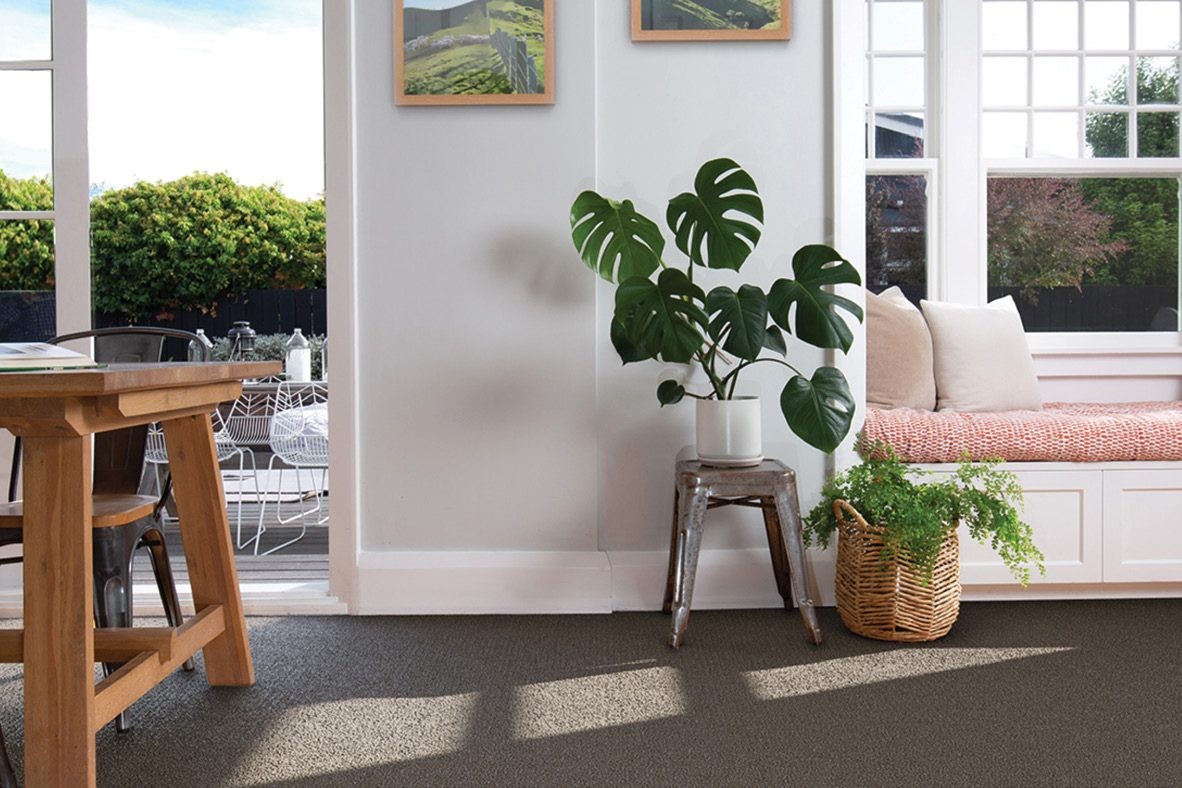Rolling out the carpets
Development of Wools of New Zealand's commercial tile range follows an 18-month testing programme in conjunction with
manufacturers and growers.

Wools of New Zealand is now selling its branded woollen carpet through more than 150 retailers and will soon launch a commercial wool tile range.
Development of the commercial tile range follows an 18-month testing programme in conjunction with manufacturers and growers.
Beef + Lamb New Zealand is among the first customers, with the tiles used in the recarpeting of the organisation’s national office in central Wellington.
WNZ Zealand chief executive John McWhirter says the roll-out of the wool tiles at a price competitive with the high-end synthetic tile market will take the product to a wider audience with a growing interest in the beneficial natural properties of wool flooring.
“Entering the carpet and wool tiles markets is a key part of our strategy to lift the fortunes of the strong wool sector.
“When we embarked on our blueprint to turn around the strong wool market, we quickly identified that carpet alone accounted for 53% of the strong wool clip.
“This meant that creating an affordable range of quality wool carpets and tiles would be the fastest way we could influence the demand for strong wool and help consume some of the excess wool produced.
“A problem in the past was that wool carpets were much more expensive than synthetics but now they have become an affordable option.”
The strong wool price is not yet where Wools of New Zealand wants it to be, he says.
“That is frustrating for strong wool growers and Wools of New Zealand, however we remain confident that our strategy is the right one to reverse the fortunes of the strong wool sector.
“We are seeing a positive shift towards natural woollen products due to increased consumer awareness and preference for ethical and sustainable options. Taking control of the value chain and moving our grower shareholders from essentially commodity traders and price takers to brand owners and price makers was crucial.
“Our goal is to make wool carpet affordable to Kiwi organisations, businesses and households, through using modern high volume manufacturing operations and taking costs out of the supply chain while maintaining very high quality.”
Individuals and organisations are increasingly wanting to ensure their homes and their business premises are sustainable, and look after the wellbeing of their families and their people, McWhirter says.
“Wool is a natural product, it’s biodynamic and helps keep buildings warm in cold spells and cool during hot weather. Wool is biodegradable, naturally flame and stain resistant, it’s allergy-free and naturally grown – rather than the fossil fuel-based fibres used in synthetics.
“The many beneficial natural properties of our wool tiles make them ideal for using in commercial spaces and they will be ideal for a wide range of organisations and commercial businesses, including the education sector, offices and retail.”
The wool market has faced a number of recent challenges, including softening global markets for sheepmeat and the impact of the Napier wool scour being out of action due to damage caused by Cyclone Gabrielle. Establishing sufficient manufacturing capacity has also been a challenge.
WNZ is working towards gaining Environmental Product Declarations (EPDs) and Life Cycle Assessments (LCAs) for its wool carpet tiles to support its success in procurement tenders.
“Manufacturers need to see sustained demand and consumer interest to invest in scaling up their production of woollen products. This requires capital investment and time to refine production lines to deliver high-quality products and it requires the data to support environmental warranties.
“We are confident that a renaissance of strong woollen products will come. However, the pace of recovery depends on the wool supply chain’s ability to attract investment.”




